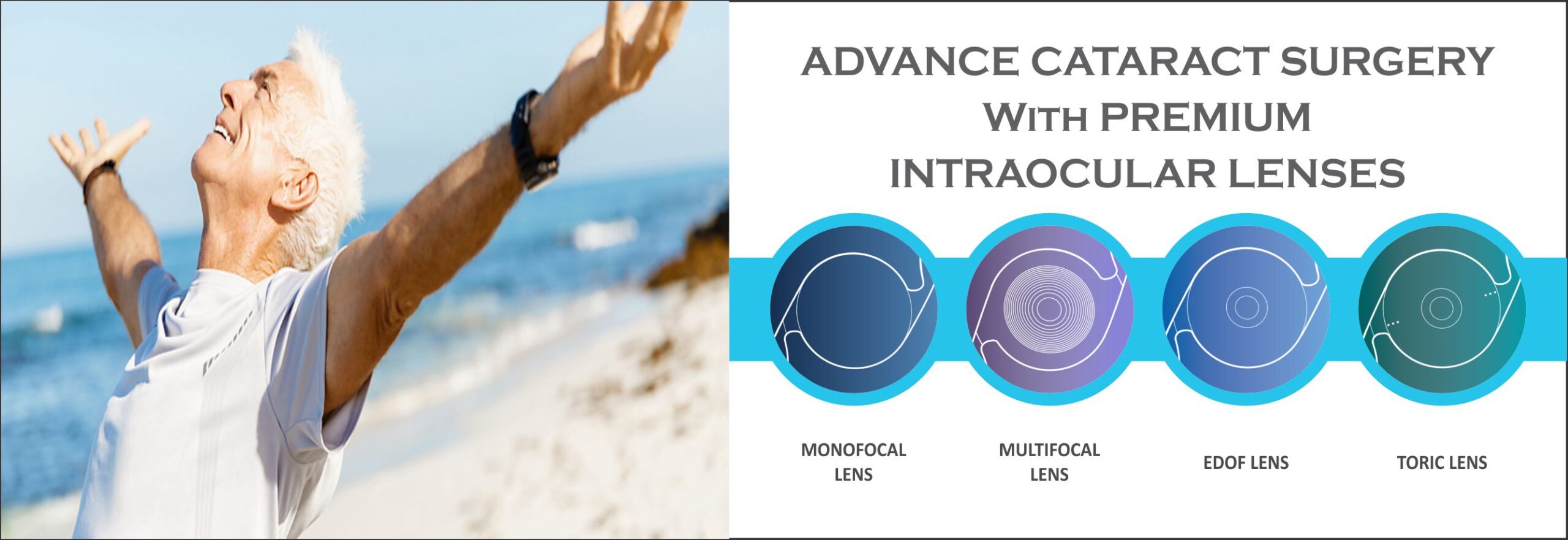The primary treatment for cataracts is surgery. Cataract surgery is a common and generally safe procedure where the cloudy lens is removed and replaced with a clear artificial lens. Types of surgery include:
- Phacoemulsification: The most common method, using ultrasound waves to break up the lens.
- Micro-incisional cataract surgery (MICS) is an advanced form of cataract surgery that involves making very small incisions in the eye to remove the cloudy lens and replace it with an artificial intraocular lens (IOL). This technique is a refinement of phacoemulsification surgery and offers several benefits over traditional methods like reduced trauma, less astigmatism, faster recovery and improved safety.
Choosing the right Intra Ocular Lens for cataract surgery? Choosing the right intraocular lens is a crucial step in your cataract surgery journey. Each type of IOL offers unique benefits and potential drawbacks. By understanding your options and working closely with your eye care professional, you can make an informed decision that enhances your vision and overall quality of life.
Here’s a guide to the different types of lenses you can choose from after cataract surgery:
Types of Intraocular Lenses (IOLs)
- Monofocal Lenses:
- These lenses are designed to provide clear vision at one distance (either near, intermediate, or far).
- You may still need glasses for near or intermediate tasks (like reading or computer work).
- Multifocal Lenses:
- These lenses have multiple focal points, allowing for vision at near, intermediate, and far distances.
- Can reduce dependence on glasses for most activities.
- Some patients may experience glare and halos around lights, particularly at night.
- Toric Lenses:
- Designed to correct astigmatism in addition to cataracts.
- Provide clear vision for patients with significant astigmatism, reducing or eliminating the need for glasses for distance vision
- Generally, you may still need glasses for near vision.
- Extended Depth of Focus (EDOF) Lenses:
- These lenses provide a continuous range of vision, particularly enhancing intermediate and distance vision.
- Reduced visual disturbances like glare and halos compared to multifocal lenses.
- May still require glasses for very close reading tasks

